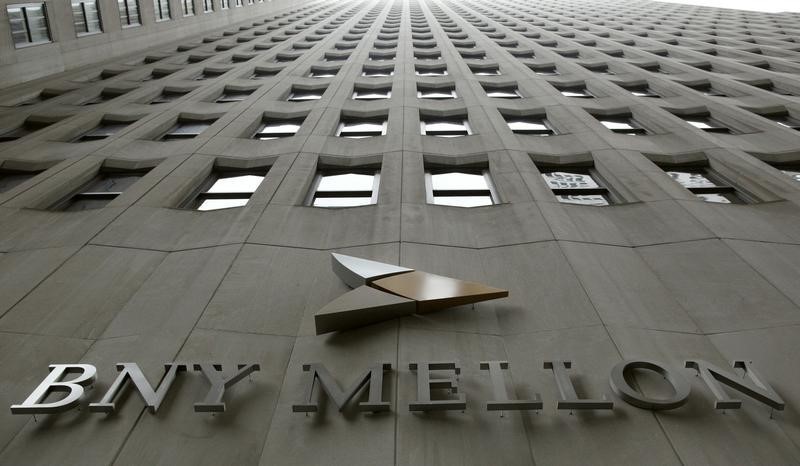TSX gains after CPI shows US inflation rose 3%
(Bloomberg) -- The residue of Sam Bankman-Fried’s crypto empire is laying bare the industry’s growing foothold in the traditional banking system.
Although there is no indication that FTX’s spectacular collapse poses any systemic risk, its bankruptcy filings read like a warning label on what could go wrong. The disclosures also raise a pressing question for US regulators and lenders: Are they doing enough to keep tabs on the fast-growing sector?
Federal watchdogs have for months been warning banks to tread carefully with digital assets, and, for the most part, Wall Street has heeded that call. Some smaller American lenders have eagerly courted business from crypto firms, including those based abroad.
“How does the US government protect US consumers from a Bahamas-based crypto exchange?” said Kevin Carr, a financial industry consultant and former Treasury Department official, referring to FTX. “There’s no easy answer to that, but it does underscore the problem of jurisdiction-shopping where a company will choose to base itself in a country with less stringent oversight.”
FTX has listed in bankruptcy filings Silvergate Capital (NYSE:SI) Corp. and Signature Bank (NASDAQ:SBNY), which are both federally regulated by the US, as places where it or related entities had accounts. It also highlighted Bahamas-based Deltec Bank & Trust, which isn’t directly overseen by Washington but is well-known in the crypto world.
All three institutions have sought to explain that their exposure to the turmoil was limited.
Silvergate has said FTX-related deposits represented less than 10% of the $11.9 billion held for digital asset customers as of Sept. 30. Signature cited an even smaller percentage -- of less than 0.1% of its overall deposits as of Nov. 14 -- and said its deposit base has held steady since the exchange’s collapse. Meanwhile, Deltec said on its website that it has “no credit or asset exposure to FTX.”
Deposit Accounts
The links, however, extend beyond deposit accounts, the bankruptcy filings show. They pointed to a surprising development that a venture capital fund tied to Bankman-Fried’s Alameda Research hedge fund invested $11.5 million in Farmington State Bank, which does business as Moonstone Bank in Washington state.
Moonstone said in a statement on Tuesday that it received Alameda’s investment in January as part of a capital raise, when the company “had a pristine reputation and was a darling of the financial markets.” The share represents less than 10% of Moonstone, it said.
‘‘Alameda has a non-controlling interest in Moonstone, with no board membership and no involvement with management,” it said. The bank, which transformed its business model following its 2020 acquisition by FBH Corp., said it has remained in close communication with regulators and added controls “to ensure all our activities comply with all applicable laws and regulations.”
The Washington State Department of Financial Institutions said the investment didn’t require regulatory approval because it did not constitute a controlling interest in the business.
It’s not just smaller banks or regional lenders that have sought to capture crypto business. Some of Wall Street’s bigger firms have started offering crypto services including some trading, wealth management and advisory, which are typically less risky to their businesses than accepting crypto deposits or investments.
Bank of New York Mellon (NYSE:BK) Corp. in October launched a US digital asset platform allowing some clients to hold and transfer Bitcoin and Ether, which it said is the first by a global bank to provide such services.
In comments that now seem prescient, Fed Vice Chair Michael Barr said in October that banks should be cautious in their partnerships with crypto firms, given the interconnectedness between digital-asset companies exposed by the recent failures in the market. Barr also warned that working with crypto companies can expose banks to risks including fraud, theft, manipulation, and money laundering.
Neither US federal nor state regulators have accused Silvergate, Signature, Deltec, or Farmington State Bank of any wrongdoing in their dealings with FTX.
Representatives for the Federal Reserve, the Federal Deposit Insurance Corp. and the Office of the Comptroller of the Currency all declined to comment on whether the FTX filings spotlight regulatory blind spots.
FTX Blowup
To be sure, even before FTX’s blowup, federal regulators were grappling with how to deal with crypto ties to traditional finance.
Throughout 2022, the FDIC has been trying to crack down on companies, including FTX and Voyager Digital LLC, over claims they may mislead investors into thinking their money was covered by deposit insurance. Both firms are now bankrupt.
In the case of Voyager, the crypto platform said in some materials that US dollar deposits with the firm were covered by FDIC insurance, in the event of either the crypto company or the bank’s failure. In reality, while Voyager’s banking partner Metropolitan Bank Holding Corp. was insured, Voyager wasn’t, meaning clients wouldn’t benefit from the insurance if Voyager went under.
Meanwhile, banks and the trade groups that represent them have said they lack clarity from Washington regulators on how to engage in crypto activities, including through partnerships with digital-asset firms and fintechs.
Self-Policing
Sultan Meghji, a former chief innovation officer for the FDIC, acknowledged that bank regulators have been struggling with how to handle those partnerships and said watchdogs could be doing “a lot more.”
In the meantime, however, Meghji said he expects banks offering services to crypto companies to face a lot more scrutiny following the FTX failure. He said that firms should consider doing more self-policing so that they’re not liable for any misconduct.
“I would do a complete audit of all of my banking as a service customers and look at beneficial ownership of all of those customers to ensure that I have not -- knowingly or not -- gotten in bed with the next FTX,” Meghji said.
©2022 Bloomberg L.P.
